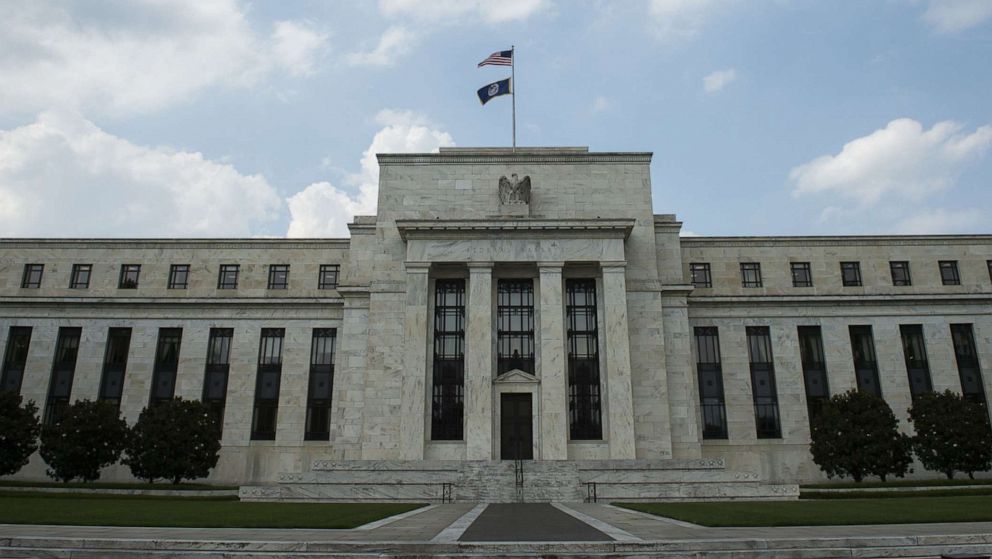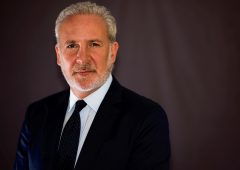Interest Rates Should be Cut Immediately, According to a Former President of the New York Fed
25.07.2024 22:00 2 min. read Kosta Gushterov
Bill Dudley, the former president of the Federal Reserve Bank of New York, reversed his position, advocating an immediate cut in interest rates instead of keeping them higher for an extended period.
Dudley articulated this change in view by stating:
I have changed my mind… Waiting until September unnecessarily increases the risk of recession.
This change is significant, especially given that just two months prior Dudley had argued that a much higher neutral rate could mean that the current federal funds rate of 5.3% was insufficient to control economic growth.
He said the Federal Reserve (Fed) should cut interest rates, ideally at an upcoming policy meeting.
Dudley explained that the robust performance of the U.S. economy over the years shows how the Fed’s measures have not been enough to slow it down. Government spending during the pandemic left individuals and businesses with significant cash reserves.
The Biden administration’s large investments in infrastructure, semiconductors and green technology have fueled demand. In addition, easing financial conditions, especially the stock market upturn, have boosted the spending capacity of wealthier households.
Dusley believes that the Federal Reserve’s attempts to rein in the economy are already showing results. Affluent households continue to spend because of high asset prices and mortgage refinancing at historically low long-term interest rates.
However, many have exhausted their savings, built up by substantial government financial transfers, and are now feeling the strain of high interest rates on credit cards and car loans.
-
1
Robert Kiyosaki Predicts 2025 “Super-Crash,” Urges Hoarding Gold, Silver, and Bitcoin
23.06.2025 13:31 2 min. read -
2
Billionaire Slams Meme Stock Hype and Sounds Alarm on U.S. Fiscal Health
15.06.2025 18:00 2 min. read -
3
Billionaire Investor Sees Dollar Crash If Key Support Breaks
18.06.2025 15:00 1 min. read -
4
Nassim Taleb Says Global Trust Is Shifting from the Dollar to Gold
22.06.2025 17:00 1 min. read -
5
Geopolitical Shockwaves Hit Ethereum Hard While Bitcoin Stays Resilient
22.06.2025 16:21 1 min. read
Robert Kiyosaki Predicts When The Price of Silver Will Explode
Robert Kiyosaki, author of Rich Dad Poor Dad, has issued a bold prediction on silver, calling it the “best asymmetric buy” currently available.
U.S. PCE Inflation Rises for First Time Since February, Fed Rate Cut Likely Delayed
Fresh data on Personal Consumption Expenditures (PCE) — the Federal Reserve’s preferred inflation gauge — shows inflation ticked higher in May, potentially delaying the long-awaited Fed rate cut into September or later.
Trump Targets Powell as Fed Holds Rates: Who Could Replace Him?
Federal Reserve Chair Jerome Powell is once again under fire, this time facing renewed criticism from Donald Trump over the Fed’s decision to hold interest rates steady in June.
U.S. National Debt Surge Could Trigger a Major Crisis, Says Ray Dalio
Billionaire investor Ray Dalio has sounded the alarm over America’s soaring national debt, warning of a looming economic crisis if no action is taken.
-
1
Robert Kiyosaki Predicts 2025 “Super-Crash,” Urges Hoarding Gold, Silver, and Bitcoin
23.06.2025 13:31 2 min. read -
2
Billionaire Slams Meme Stock Hype and Sounds Alarm on U.S. Fiscal Health
15.06.2025 18:00 2 min. read -
3
Billionaire Investor Sees Dollar Crash If Key Support Breaks
18.06.2025 15:00 1 min. read -
4
Nassim Taleb Says Global Trust Is Shifting from the Dollar to Gold
22.06.2025 17:00 1 min. read -
5
Geopolitical Shockwaves Hit Ethereum Hard While Bitcoin Stays Resilient
22.06.2025 16:21 1 min. read


